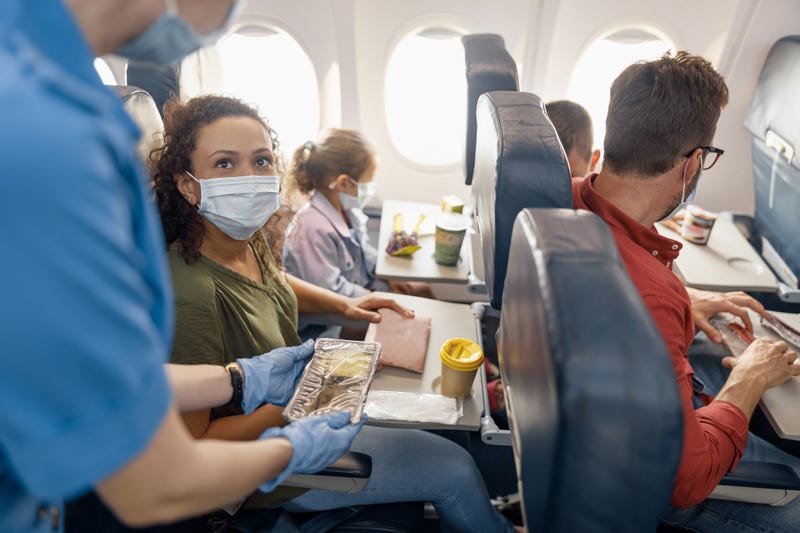
SAN FRANCISCO (KCBS RADIO) – As COVID-19 regulations continue to change across the country, and around the world, travel has once again become a confusing minefield.
With summer fast approaching and travel plans likely in the works for many, it’s unlikely any one country is safer from virus transmission than the other.
"When you're talking about a virus that can't be eradicated or eliminated, it's going to be ubiquitous," said Dr. Amesh Adalja, Senior Scholar at the Johns Hopkins Center for Health Security on KCBS Radio's "Ask an Expert" on Monday with Holly Quan and Jason Brooks.
"That's what it means when a virus is endemic, just like influenza," he said. "There's no country that's free from influenza."
Some places might be more of a hot spot at a particular time than others, but there will always be a baseline of transmission everywhere.
In terms of masking, it's really dependent on an individual’s risk tolerance, and when they feel safe going without their mask, and when they feel it would be better to keep their mask on.
It's more than likely that everyone will get COVID-19 at some point, and sometimes even more than once, he said.
"20 years from now there will still be COVID-19," said Adalja. "And I don't think we will still be asking these questions because people will have acclimatized to that risk."
For those traveling now, who are over the age of 65 or have an underlying condition might want to preemptively have some COVID-19 antiviral medication on hand, just in case they test positive while abroad.
And those groups need to best weigh their own risk when deciding if they should travel right now, said Adalja.
"If it's a 99-year-old person I would be much more reticent than if it was a 19-year-old," he said. "But if it’s a 99-year-old person who wants to go do something they've never done before and this is the only chance they have to do it, I would say go do it."
But they should still take precautions, "and use the tools that we have," he said. "Knowing that there's going to be some risk that you can't completely reduce."
"This abstinence-only approach is not something I’ve ever endorsed," said Adalja.
And travel isn't necessarily going to increase the risk of transmission of the virus any more than regular, day-to-day social activities.
"You can just travel down the block and get it," he said.
LISTEN on the Audacy App
Sign Up and Follow Audacy
Facebook | Twitter | Instagram
